EV charger adapters that won't power your RV!
Don't connect your RV shore power cord to an EV charger adapter, or bad things may happen!
Even though many of the Electric Vehicle adaptors look like they should work to power your RV, don’t do it!
Just because you can buy it, doesn’t make it safe to use!
I just saw this EV Charger adapter in a newsletter from AC Works. While they do make a lot of quality adapters for a variety of applications, this one is dangerous for your RV. That’s because the 3-prong dryer outlet doesn’t have a separate neutral. It has a combined EGC/Neutral conductor that’s used to supply 120-volt control and motor power to an electric dryer, NOT the high current of the heating element.
You can’t use a ground conductor for neutral current!
If you do use the adapter shown at the top to power your 50-amp RV, you’ll be connecting your shore power ground and neutral conductor paths, which is a code violation since an open neutral can back-feed voltage into the chassis of your RV. And no, you can’t connect the Green ground wire on the adapter to a grounding rod. As I’ve written many times, a ground rod does not ground your RV.
Some 14-50 EV charger outlets won’t have a neutral conductor!
I’ve heard of EV charger installations that use a standard NEMA 14-50 receptacle exactly like your RV shore power plug. But because Level-2 EV chargers are 240-volts only, many electricians don’t bother to run a neutral conductor. If you plug your RV into one of the these EV Charger receptacles the split-phase 120/240-volt service will not “split” into 120/120-volts. Instead it can divide into crazy high voltages such as 180/60 Volts, with your expensive gadgets being on the 180-volt side.
A bunch of other adapters that won’t work for your RV
AC Works makes a bunch of other adapters that are probably safe for your Electric Vehicle Charger, but NOT for your campsite or RV. Take a look!

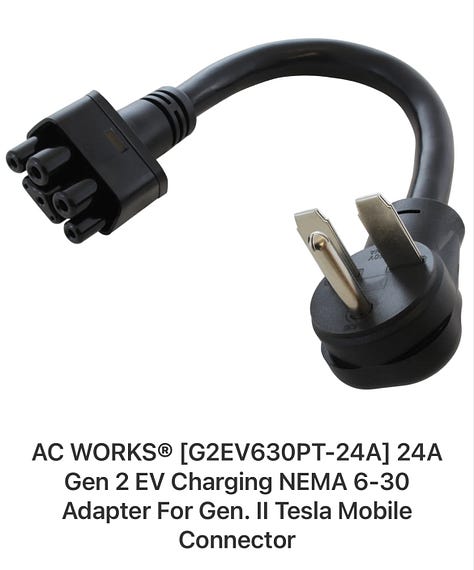
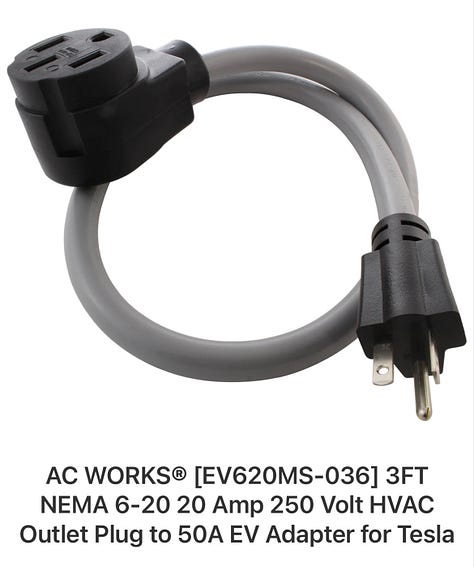
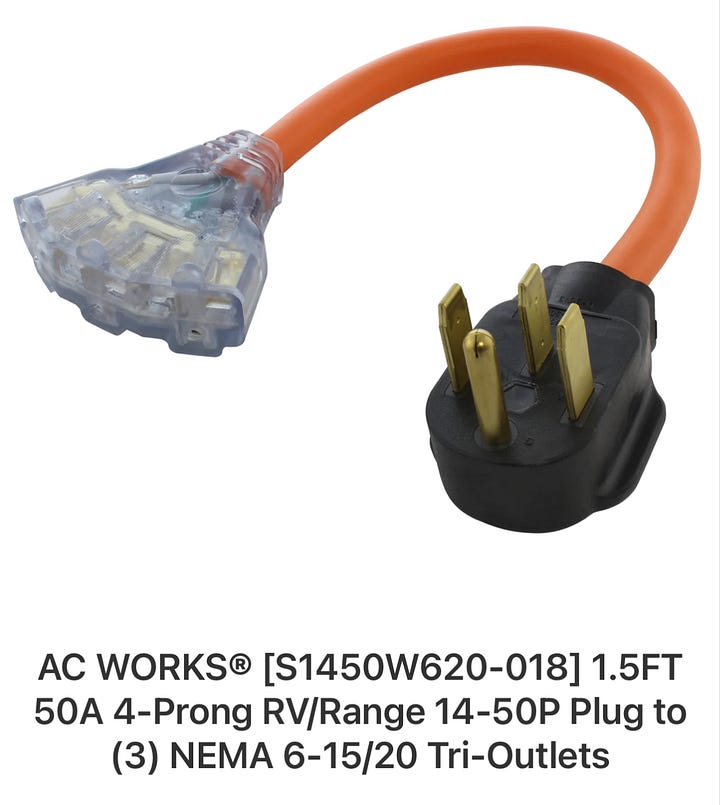
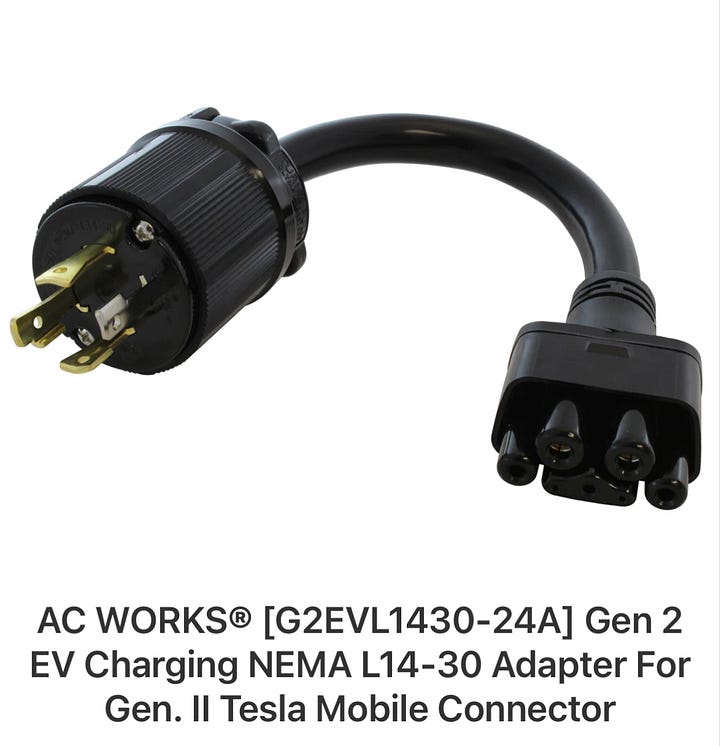
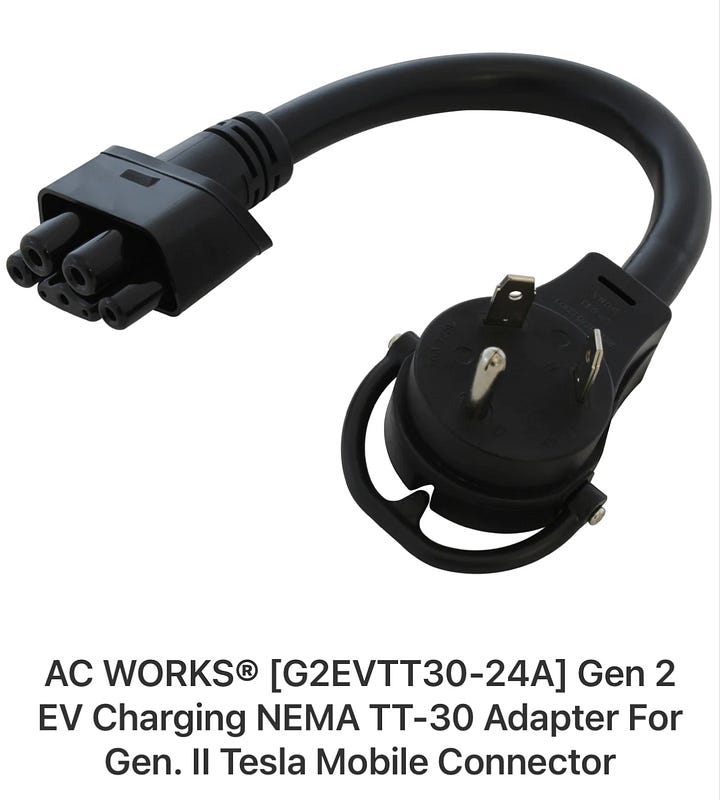
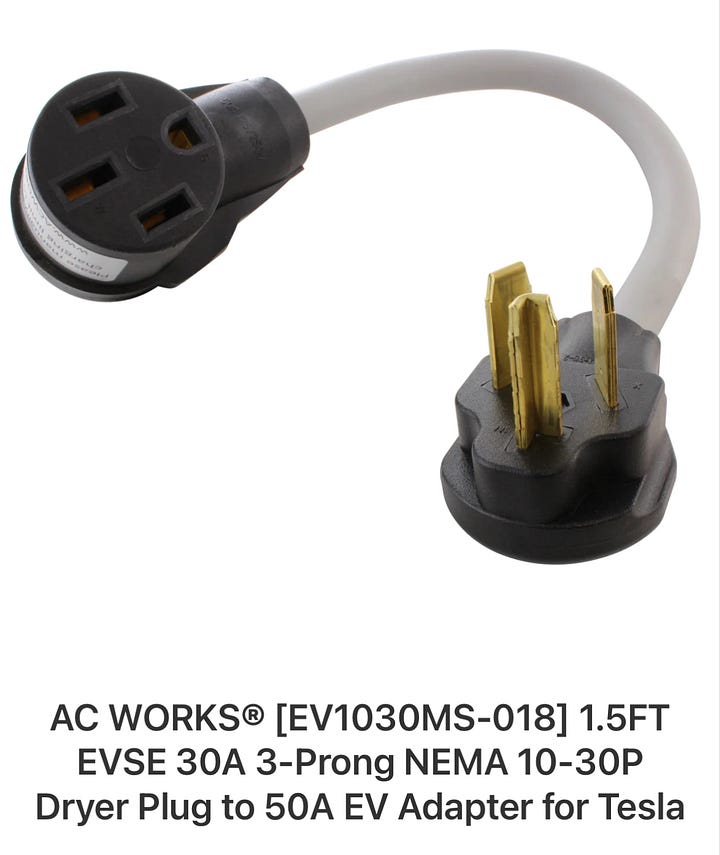
Let’s play (and plug) safe out there… Mike









The big issue with 3 wire range and dryer circuits is the rampant mis-understanding about what was allowed, and the variations that were allowed. The requirements were very specific, the 3 wire circuit could be fed with SE (service entrance) cable providing it originates at the service entrance. In this case, using the adapter shown would be no different than an RV outlet connected directly to the main service, as the 3 wire SE is just an extension of the service where the neutral and ground become common.
If the original 3 wire circuit was installed to a sub panel,, a 3 wire cable was allowed as long as the neutral conductor was insulated. This is a little different, since as Mike pointed out, you now have neutral current flowing on grounded parts unless the sub panel is also 3 wire and has no bond to anything grounded, and does not contain any grounding wires to other circuits, but this is rare, most 3 wire sub panels have neutral and ground mixed which in itself presents a hazard.
Then there are the illegal 3 wire hookups that used NM with a bare ground for the neutral/ground.
There is no way the average person is going to know what type he is plugging into therefore I find Mike's advice sound.
I am not a fan of folks using cheater plugs at the RV park or campground to adapt a 12,000-watt RV to a 3,600-watt RV outlet. Or the recharging of EV’s in an RV park unless from a dedicated EV charger. I am not opposed to EVs. I am only opposed to the fact RV park and campground electrical systems were never designed for the electrical loads of using some cheater plugs or EV charging. I think most home owners would want every electrical contact in every electrical outlet in their home attached to a correctly sized wire to the electrical panel. Or at least their home owner’s insurer would. Anything less is setting up an unsuspecting person up for equipment damage, electric shock, or electrocution. If not upgrading a 240V, 3-wire circuit to 4-wires, just do not install a 4-wire outlet on it or use a cheater plug. Just like a bootleg ground connection on a 2-wire, 120V circuit plug. It works until something bad happens.